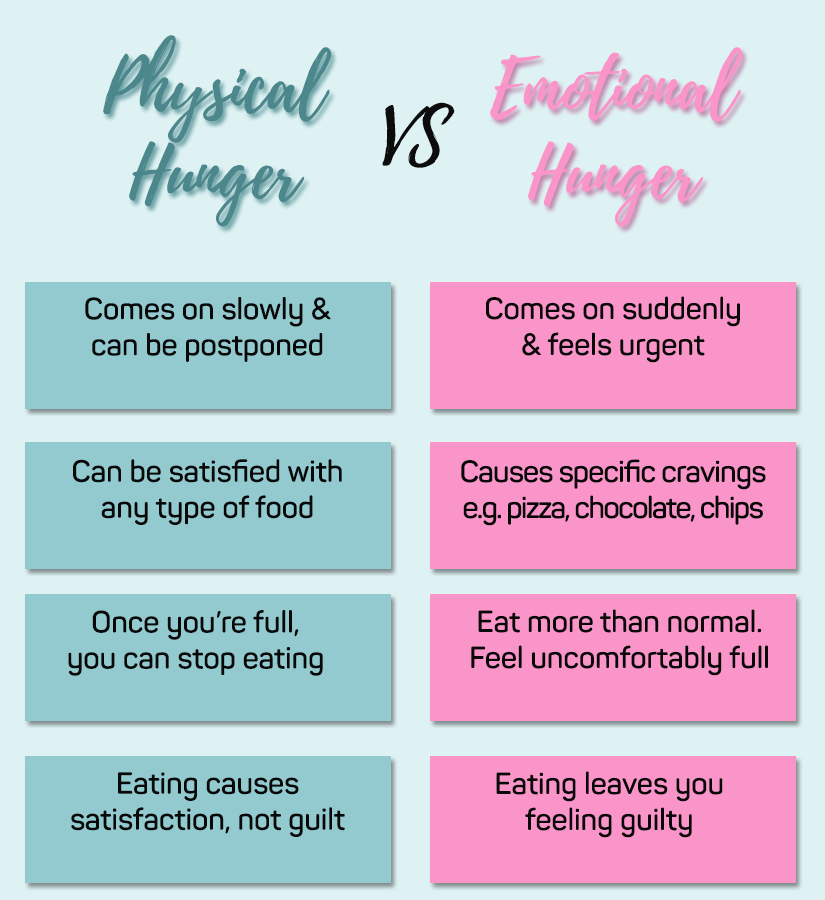If you had told me I was emotional eating when I was overweight – I would have denied it profusely. I was happy, how could I be an emotional eater?
One of the reasons people can struggle to lose weight is due to emotional eating. Perhaps you don’t think you’re an emotional eater. Well neither did I. I thought this was something confined to unhappy people. So, how can you tell the difference between being hungry and eating because of an emotion? Look below and see if you can identify with the statements on either side of the chart.

How did you go?
With the hectic world we live in we can often feel overwhelmed with all the pressures that life brings, such as financial worries, unhappy relationships or self-worth issues. This can result in anxiety and/or depression which can in turn affect eating patterns, and food can become a source of comfort and an emotional crutch. So, if you identified with a lot of the statements on the right side of the chart, you’re not alone.
I know from my own experience that food is not going to make you feel better. Yes, while you’re eating it seems to help, but shortly after feelings like anger and guilt are likely to set in. It’s a vicious circle.
The good news is that you can overcome emotional eating.
The first step with changing any habit (yes, it’s just a habit) is recognising it’s causing you a problem. And… as with any bad habit, it’s not about ‘giving up’ the habit, it’s about replacing it with a healthy habit.
When faced with an impending emotional eating binge, the best thing to do is find something to do to help take your mind off it or find a way to handle the feelings without turning to food.
Ideally, eliminate the cause of the stress, but if that’s not possible, take a look at my suggestions below.
What to do instead of emotional eating
- Ring a friend or family member. Do whatever works for you that will take your mind off food, so you avoid the binge happening.
- Make sure you only have healthy food in the house. If there are biscuits, chips, ice-cream or whatever tempts you in the house then it can be dangerous in those weak moments. If the food isn’t in the house that will really help avoid a binge.
- Get out of the house. Go shopping, visit a friend, or take the dog for a walk, do some gardening, anything to get you out of the house and stop you thinking about food.
- Take a bath. Put some candles around and some relaxing music and just relax for a while.
- Take up a hobby. Anything you do with your hands will help to keep your mind off food. Try crocheting, knitting, card making or a jigsaw puzzle.
Realise that habits take time to break and, if you’re feeling emotional, finding a way to deal with those emotions without turning to food is the best outcome.
If you find you’re still struggling to manage your emotions, a visit to your GP is a good idea. They won’t judge or criticise so ask for help if you need it.
Action step
Identify any tendencies towards emotional eating and the time of day they’re most likely to occur. Decide what you’ll do instead at these times.


